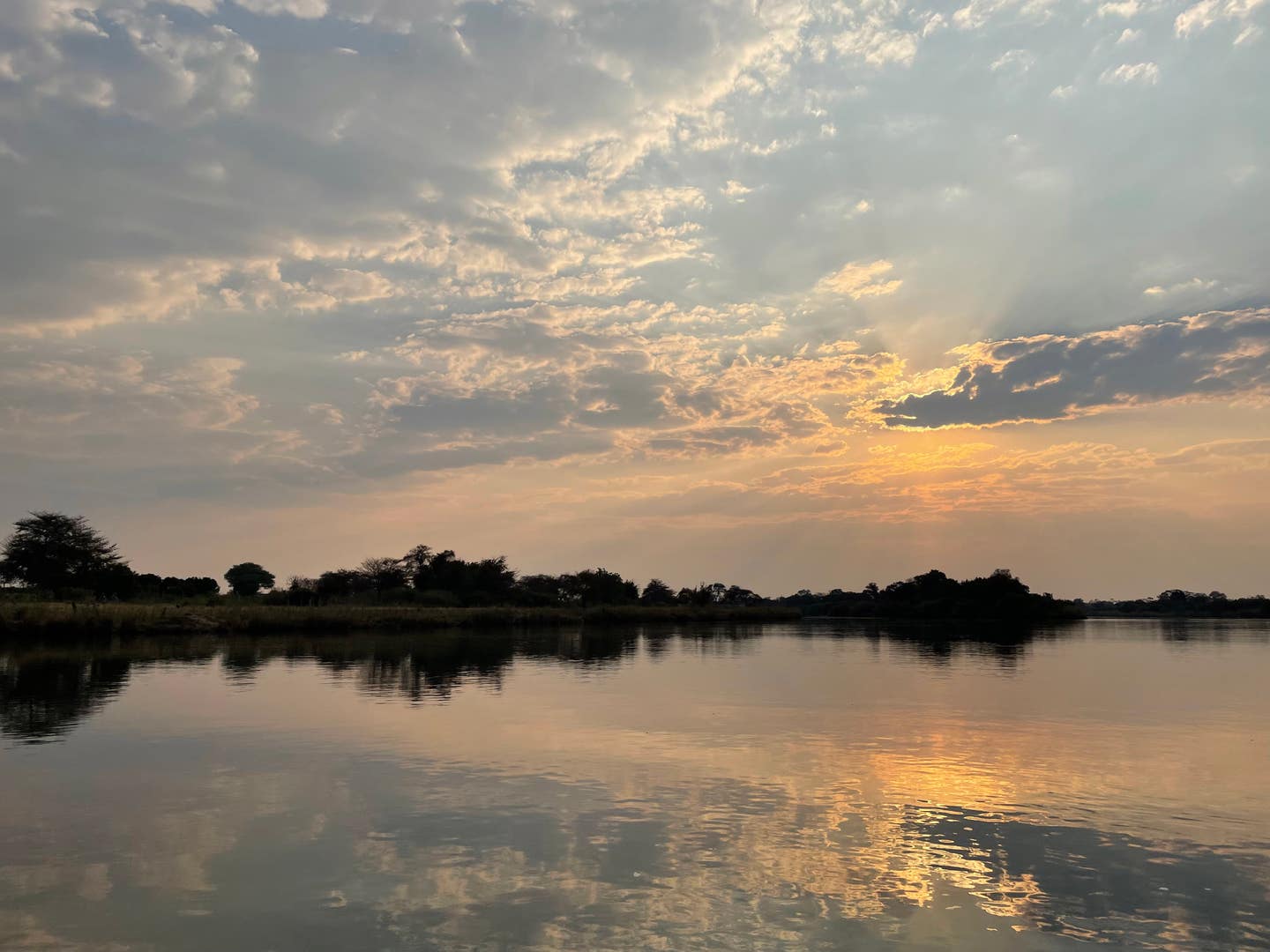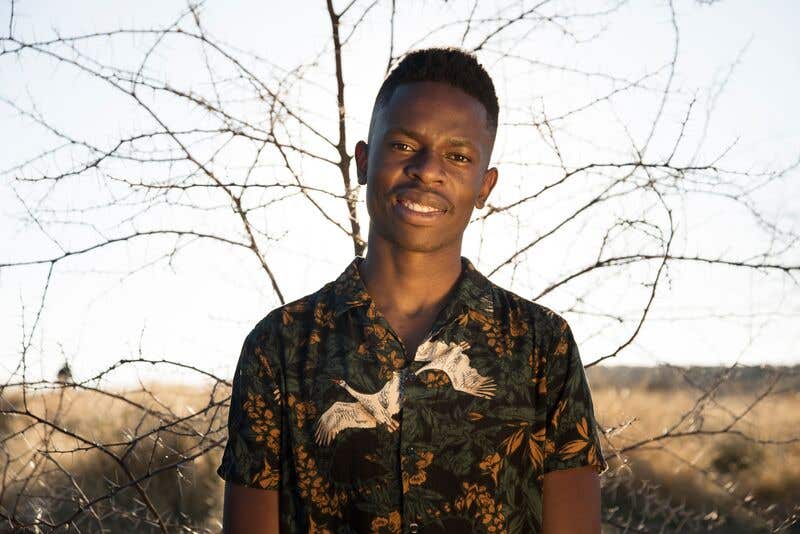Reinhold Mangundu’s love for nature developed in childhood, where his dad, a subsistence farmer in north-central Namibia, often told stories around the fire. “Sadly for me, I could only picture the forests and the birds and the animals through his stories—because I was born in a village where we didn't have enough trees as a result of the conundrum of development. Modern development had completely removed everything that gave purpose and identity to our village, including beautiful forests. We had progressive drought and floods. But my father would paint this picture of the previous forests and the birds and everything that once existed. That really led me to become passionate about trying to reweave a new narrative on how to restore what I didn't get to see.”
Reinhold, 25, is now based in Windhoek, where he is supporting various voluntary programmes and projects supporting a just, and sustainable society in Namibia. He just completed his Masters of Philosophy in sustainable development, planning and management from Stellenbosch University, hosted by the Centre of Sustainability Transitions.His thesis explored the potential of participatory games as an experiential learning approach for responding to Sustainable Development Goal (SDG) challenges in Namibia.
Reinhold recalls that as a teenager, his peers would draw pictures of their family, but he’d be creating pictures of birds and trees. “Ever since then, I have dedicated my entire life and professional career to serve people and planet,” he said.
Motivated by his love for the wild, but also by a desire to help so many Namibians disproportionately affected by the effects of the climate crisis such as flooding, Reinhold sought out education, experience, and support.
Reinhold is a joiner. He is active in multiple organizations with like-minded peers, including the Namibia Environment and Wildlife Society, Fridays for the Future Windhoek, the Global Peace Initiative for Women, the Namibia Youth Coalition on Climate Change, and the Youth task force at UNICEF Namibia. “I am a person who never rests. I'm a people person,” he said.
It was through this work that he became a leading activist in protecting the Okavango, a critical ecosystem that crosses Botswana and Namibia. Full of wildlife, the Okavango region is also an important water source to more than 1 million people. Reinhold was shocked to learn in 2020 that a Canadian oil company, ReconAfrica, was permitted to begin oil exploration and prep for future drilling in the region.
“The first time I heard about ReconAfrica was when the rig was on its way on the ship,” he said. “We need to fight because this is the start of a catastrophe. We are already vulnerable as a country and looking at where these guys are going for exploration, it's quite worrying. I can't bear the thought of telling stories to my grandkids, as my father did, that there was once a delta there.”
Reinhold worked with other activists to organize a climate strike, petition UNESCO, and call on the National Assembly to reconsider allowing ReconAfrica into the Okavango. Several attempts were made to connect directly with ReconAfrica but the company largely would not engage, Reinhold said.
“If they discover oil, everything will vanish. We know for sure, and we see in case studies around the world what oil and gas has done to underground aquifers, what oil and gas has done to an entire ecosystem.”
Instead, there is a lot to gain by preventing exploration and drilling in the Okavango. “There's massive potential for Namibia to have a decentralized renewable energy system where people can improve their lives, specifically in this sense because there is a strong nexus between food, energy, and water. The basin and the delta itself have gone for generations supporting all sorts of life, and keeping it intact would benefit people’s livelihoods.”
Given the gravity of the challenges he is tackling with his activism, Reinhold says he also sets aside time to rest—finding comfort in camping under the stars and writing poetry. “I find myself writing poetry and stories because I'm a storyteller. I've seen the importance of storytelling, and how much it means to take, for instance, climate knowledge, to take scientific knowledge, and simplify it for other young people to understand it.”
Mother Earth, by Reinhold Mangundu
Green and gorgeous, healthy and pretty
loving and caring, she made us happy.
Pittering-patter, fell rain on leaves.
Green and bushy the grateful trees.
Flipping their wings, birds sing their salvation
to Mother Earth, the best creation.
Now hold her close
and share your connection

